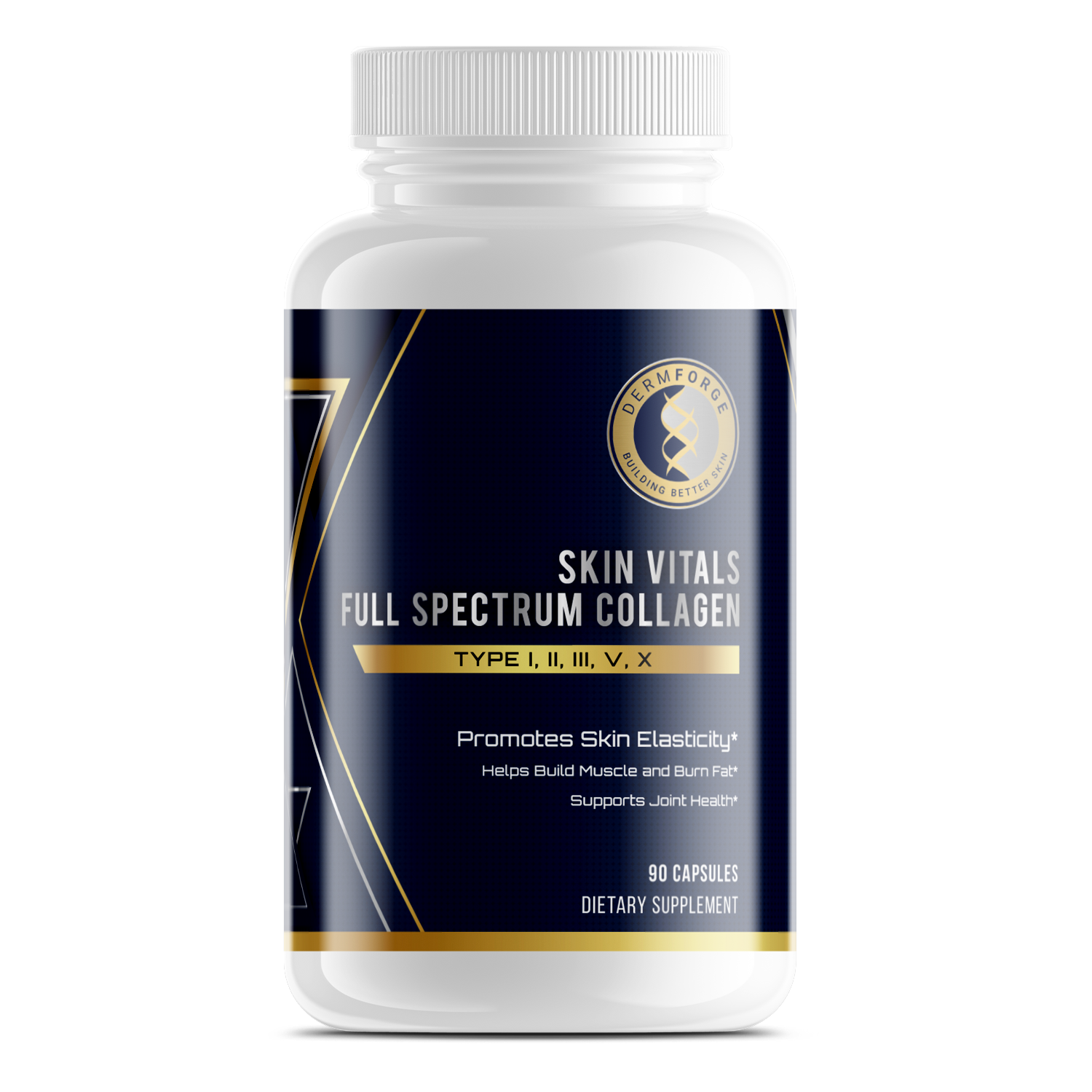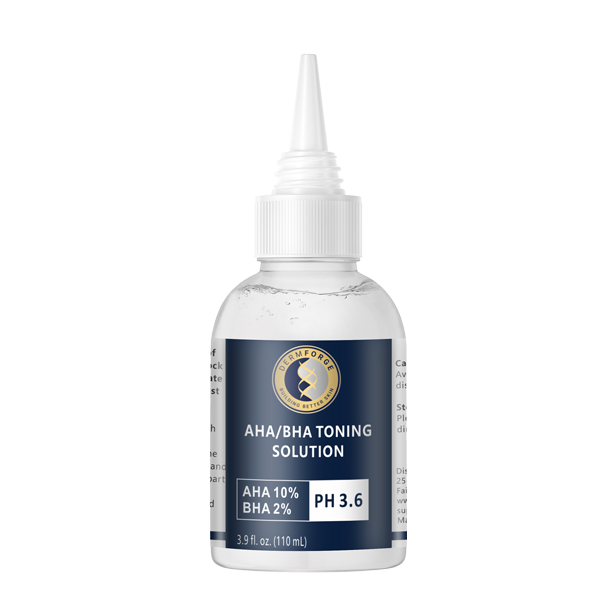Collagen supplements have gained popularity for their potential benefits to skin health. Many individuals seek ways to maintain a youthful appearance. As you age, your body's collagen production naturally declines. This decrease can lead to wrinkles and reduced skin elasticity. Consequently, the interest in collagen supplements and skin health has surged. But do these supplements truly deliver on their promises?
Collagen is a structural protein abundant in your body. It provides support to your skin, bones, and connective tissues. However, factors like sun exposure, smoking, and aging can degrade collagen fibers. This degradation contributes to visible signs of aging. Therefore, understanding how to support collagen production is essential.
Some studies suggest that collagen supplements may improve skin hydration and elasticity. However, results can vary based on individual factors. Additionally, not all supplements are created equal. Therefore, choosing a high-quality product is crucial. Consulting with a dermatologist can provide personalized advice.
Incorporating collagen supplements into your routine may offer benefits. However, it's important to manage expectations. Combining supplements with a healthy lifestyle yields the best results. Therefore, focus on a balanced diet, sun protection, and proper skincare. This comprehensive approach supports your skin's health effectively.
What is Collagen? Understanding Its Role in Skin Health
Collagen is the most abundant protein in your body, serving as a fundamental building block for skin, bones, muscles, tendons, and ligaments. In your skin, collagen provides structure, support, and strength, contributing to its elasticity, hydration, and firmness. This protein forms a scaffold that maintains skin's resilience and suppleness, allowing it to withstand stretching and environmental factors.
As you age, your body's natural collagen production declines. Starting in your mid-20s, collagen synthesis decreases by about 1% per year. This gradual reduction leads to visible signs of aging, such as wrinkles, sagging skin, and a loss of firmness. The diminished collagen affects your skin's ability to retain moisture and elasticity, resulting in a less youthful appearance.
Several factors can accelerate collagen loss beyond the natural aging process. Excessive sun exposure, smoking, high sugar intake, and environmental pollutants can further degrade collagen fibers, exacerbating skin aging. These external elements contribute to the breakdown of collagen's structure, making it more challenging for your skin to maintain its integrity and youthful look.
Understanding the role of collagen in skin health has led to increased interest in collagen supplements and skin health. These supplements aim to support your body's collagen levels, potentially improving skin elasticity, hydration, and overall appearance. While research is ongoing, some studies suggest that collagen supplementation may help counteract the natural decline in collagen production, promoting healthier, more resilient skin.
Maintaining collagen levels is essential for preserving your skin's youthful qualities. By adopting a healthy lifestyle that includes a balanced diet, sun protection, and avoiding harmful habits like smoking, you can support your skin's natural collagen production. Additionally, exploring collagen supplements may offer a proactive approach to enhancing skin health, helping you maintain a vibrant and youthful complexion.
The Science Behind Collagen Supplements: Do They Really Work?
Collagen supplements have gained popularity for their potential to enhance skin health. But do they truly deliver on these promises? Scientific studies provide insights into how these supplements may benefit your skin.
Research indicates that collagen supplements can improve skin elasticity and hydration. A systematic review of clinical studies found that hydrolyzed collagen supplementation positively affects skin aging and wound healing. Participants experienced increased skin elasticity and hydration, along with reduced wrinkle depth. These findings suggest that collagen supplements may support skin health.
Understanding the absorption process of these supplements is essential. Collagen supplements typically contain hydrolyzed collagen peptides, which are collagen proteins broken down into smaller units. This hydrolyzation process enhances their absorption in your digestive tract. Once ingested, these peptides are absorbed as di- and tri-peptides in the small intestine. From there, they enter your bloodstream and reach the skin, where they may stimulate collagen production and improve skin structure.
However, it's important to note that while preliminary results are promising, further large-scale randomized control trials are necessary to confirm these findings. Therefore, while collagen supplements may offer benefits for skin health, more research is needed to fully understand their efficacy.
Collagen supplements and skin health are closely linked, with studies suggesting potential benefits. However, as with any supplement, individual results may vary, and it's advisable to consult with a healthcare professional before adding collagen supplements to your routine.
Types of Collagen Supplements: Which One is Best for Your Skin?
Collagen supplements have become popular for promoting skin health. Understanding the different types of collagen and their sources can help you choose the best option for your skin.
Type I collagen is the most abundant in your body, providing structure to your skin, bones, tendons, and ligaments. It's known for enhancing skin elasticity and hydration. Type II collagen is primarily found in cartilage, supporting joint health. Type III collagen is present in muscles, arteries, and organs, often working alongside Type I to maintain skin firmness and elasticity.
Collagen supplements come from various sources, each offering distinct benefits. Marine collagen, derived from fish skin and scales, is rich in Type I collagen. It's highly bioavailable, meaning your body can absorb it efficiently, which may lead to improved skin hydration and elasticity. Bovine collagen comes from cows and contains both Type I and Type III collagen. This combination supports skin elasticity and firmness, making it a popular choice for overall skin health. Plant-based collagen supplements don't contain actual collagen but include nutrients that boost your body's collagen production, such as vitamin C and amino acids. These options are suitable if you prefer a vegan approach to supporting skin health.
When selecting a collagen supplement, consider your dietary preferences and specific skin goals. Marine collagen is ideal if you're focusing on skin hydration and elasticity. Bovine collagen offers broader benefits, supporting both skin and joint health. Plant-based supplements provide an alternative for those avoiding animal products, aiding collagen production naturally.
Incorporating the right collagen supplement into your routine can enhance your skin's appearance and overall health. By understanding the types and sources of collagen, you can make an informed choice that aligns with your lifestyle and skin care objectives.
Key Benefits of Collagen for Skin Health
Collagen plays a pivotal role in maintaining your skin's health and youthful appearance. As the most abundant protein in your body, it provides structure and elasticity to your skin. However, as you age, collagen production decreases, leading to common signs of aging.
One notable benefit of collagen is its potential to reduce wrinkles and fine lines. Studies suggest that collagen supplements may improve skin elasticity, making wrinkles less noticeable. This improvement can result in a smoother, more youthful complexion. Therefore, incorporating collagen supplements into your routine might help diminish visible signs of aging.
Improved skin hydration and elasticity are additional advantages of collagen. Research indicates that collagen supplements can enhance skin moisture levels, leading to better hydration. Well-hydrated skin appears plumper and more resilient. Consequently, this increased hydration contributes to improved elasticity, helping your skin maintain its firmness.
Collagen also plays a crucial role in healing and repairing damaged skin. It supports the skin's natural regeneration process, aiding in the repair of wounds and scars. By promoting new tissue growth, collagen helps maintain your skin's integrity. Thus, adequate collagen levels are essential for effective skin healing and repair.
Incorporating collagen supplements into your daily regimen may offer these skin health benefits. However, it's important to note that individual results can vary. Consulting with a healthcare professional before starting any new supplement is advisable. By understanding the benefits of collagen, you can make informed decisions about your skincare routine.
How to Choose the Right Collagen Supplement for Maximum Effectiveness
Choosing the right collagen supplement can significantly impact your skin's health and appearance. To maximize effectiveness, consider several key factors.
First, examine the supplement's ingredients. High-quality collagen supplements often include additional nutrients like vitamin C, which supports collagen synthesis. These added components can enhance the supplement's overall effectiveness.
Next, consider the sourcing of the collagen. Supplements derived from grass-fed bovine or wild-caught marine sources are typically purer and more sustainable. Understanding the source helps ensure you're consuming a product that aligns with your health and ethical standards.
Bioavailability is another crucial aspect. Hydrolyzed collagen peptides are broken down into smaller molecules, making them easier for your body to absorb. This form enhances the supplement's potential benefits for your skin.
However, be cautious of certain red flags when selecting a collagen supplement. Products with excessive additives, fillers, or artificial ingredients may reduce effectiveness and pose health risks. Additionally, lack of transparency about sourcing or manufacturing processes can indicate a lower-quality product. Supplements not tested by third-party organizations may contain contaminants, making them unsafe.
Incorporating collagen supplements into your routine can support skin health, but choosing the right product is essential. By focusing on quality ingredients, ethical sourcing, and high bioavailability, you can select a supplement that best supports your skin's needs. Always consult with a healthcare professional before starting any new supplement regimen to ensure it's appropriate for your individual health circumstances.
Lifestyle Habits to Enhance Collagen Production Naturally
Enhancing your skin's collagen production naturally involves adopting specific dietary choices and skincare practices. These lifestyle habits can significantly impact your skin's health and appearance.
Your diet plays a pivotal role in collagen synthesis. Consuming foods rich in vitamin C, such as citrus fruits and berries, supports collagen production. Additionally, incorporating protein sources like fish, poultry, and legumes provides essential amino acids necessary for collagen formation. Leafy greens, rich in chlorophyll, may also contribute to collagen preservation.
In your skincare routine, certain habits can help maintain collagen levels. Regular use of sunscreen protects your skin from UV damage, which can degrade collagen. Applying topical vitamin C can further support collagen integrity. Simplifying your skincare routine to include gentle cleansing and adequate moisturization can also be beneficial.
While collagen supplements are popular, focusing on these natural methods can be effective. Combining a nutrient-rich diet with mindful skincare practices offers a holistic approach to enhancing collagen production. This strategy not only supports your skin's structure but also promotes overall skin health.
By adopting these lifestyle habits, you can naturally boost collagen levels. This approach contributes to maintaining youthful, resilient skin without solely relying on supplements.
Conclusion
Incorporating collagen supplements into your daily routine can offer various benefits for your skin's health. Research indicates that these supplements may improve skin elasticity and hydration, leading to a more youthful appearance. Additionally, collagen supplements may help reduce the appearance of wrinkles and fine lines, contributing to smoother skin.
However, it's important to note that individual results can vary. Factors such as age, lifestyle, and overall health can influence the effectiveness of collagen supplements. Therefore, while many individuals report positive outcomes, it's essential to manage expectations and understand that supplements are not a one-size-fits-all solution.
Moreover, maintaining a balanced diet rich in nutrients that support collagen production, such as vitamin C and amino acids, can enhance the benefits of supplementation. Engaging in healthy lifestyle practices, including regular exercise and adequate hydration, also plays a crucial role in skin health.
In conclusion, collagen supplements can be a valuable addition to your skincare regimen. By combining supplementation with healthy lifestyle choices, you can support your skin's natural vitality and achieve a radiant complexion.






